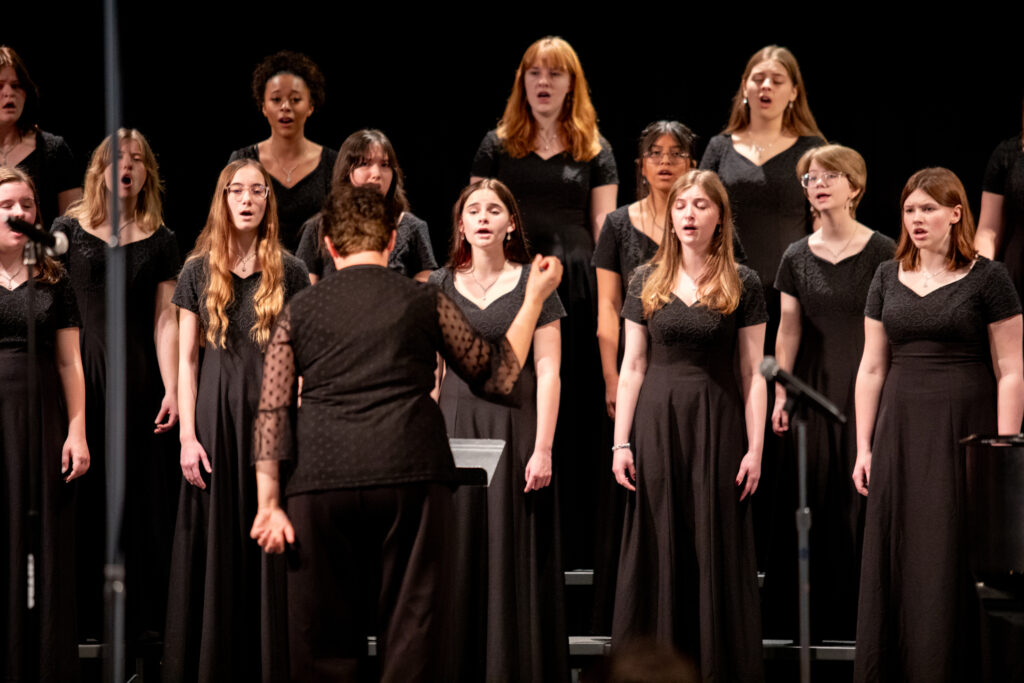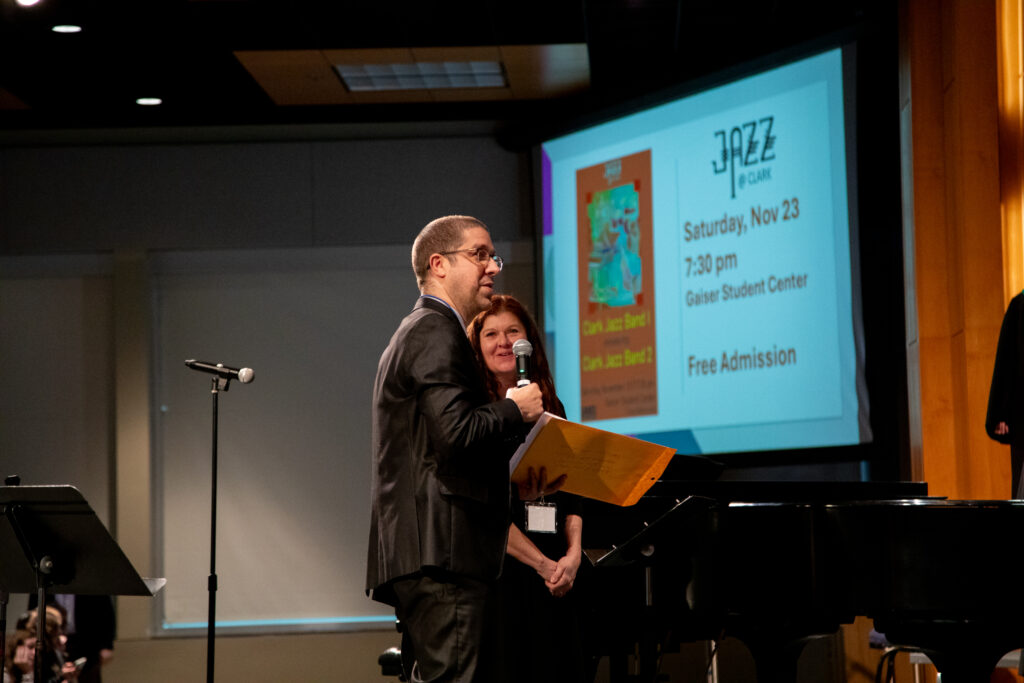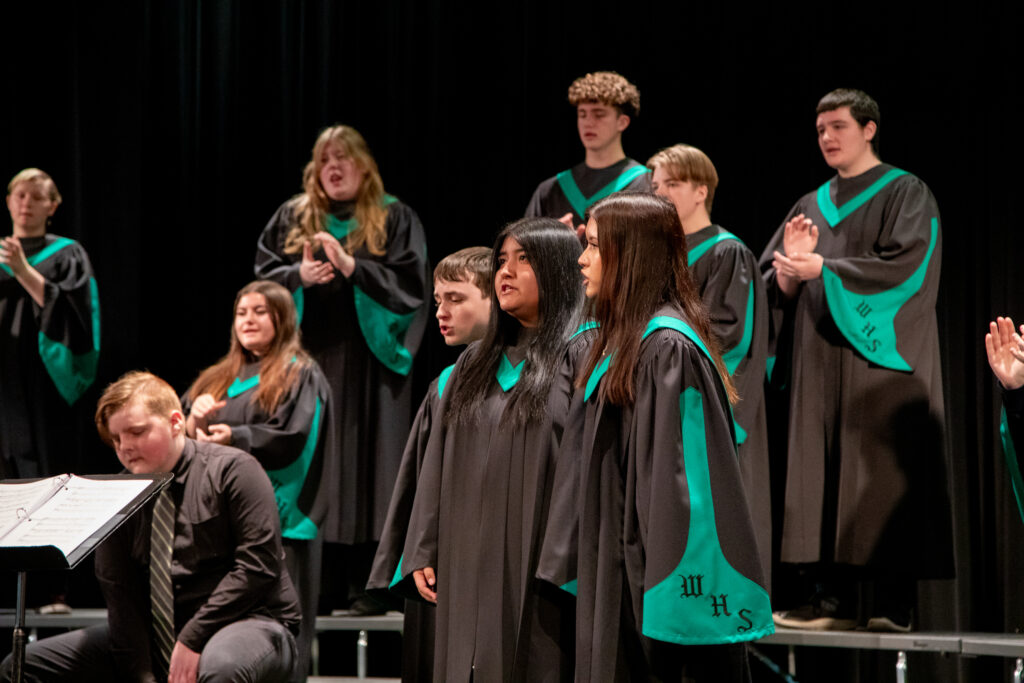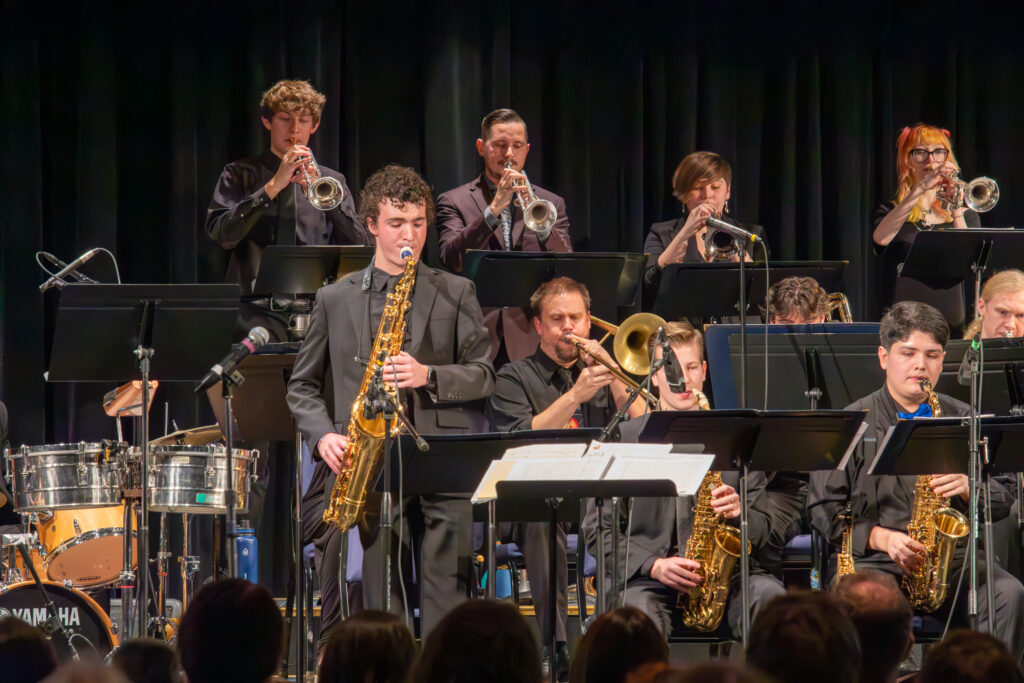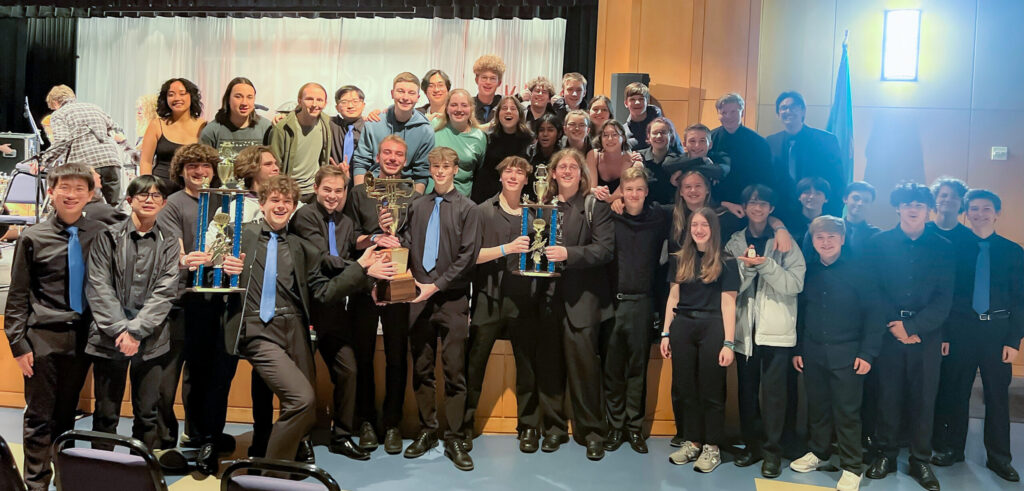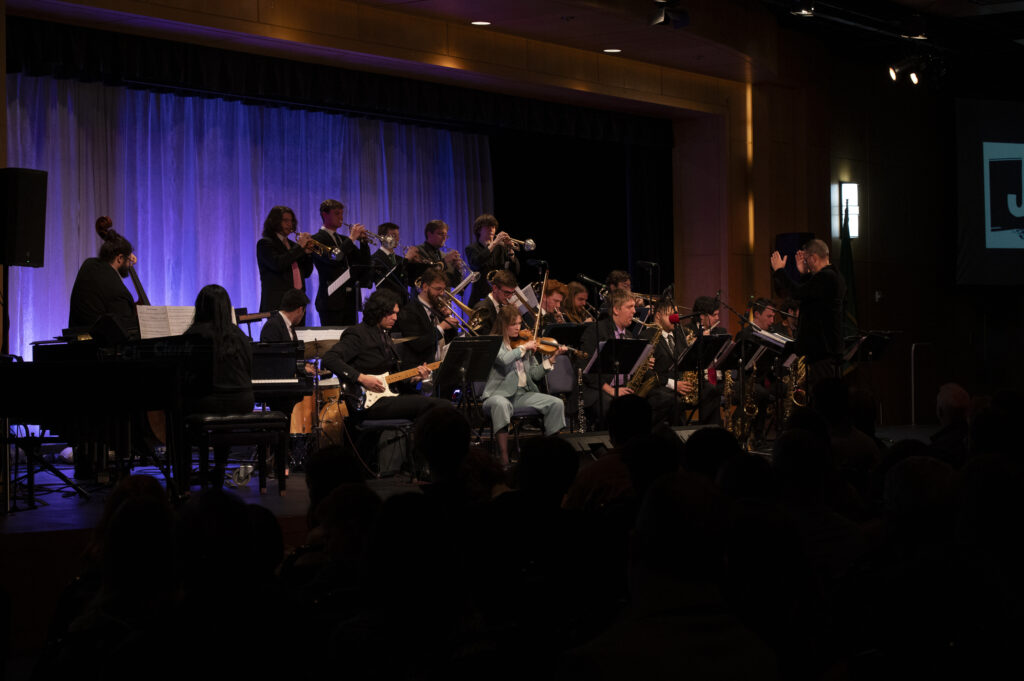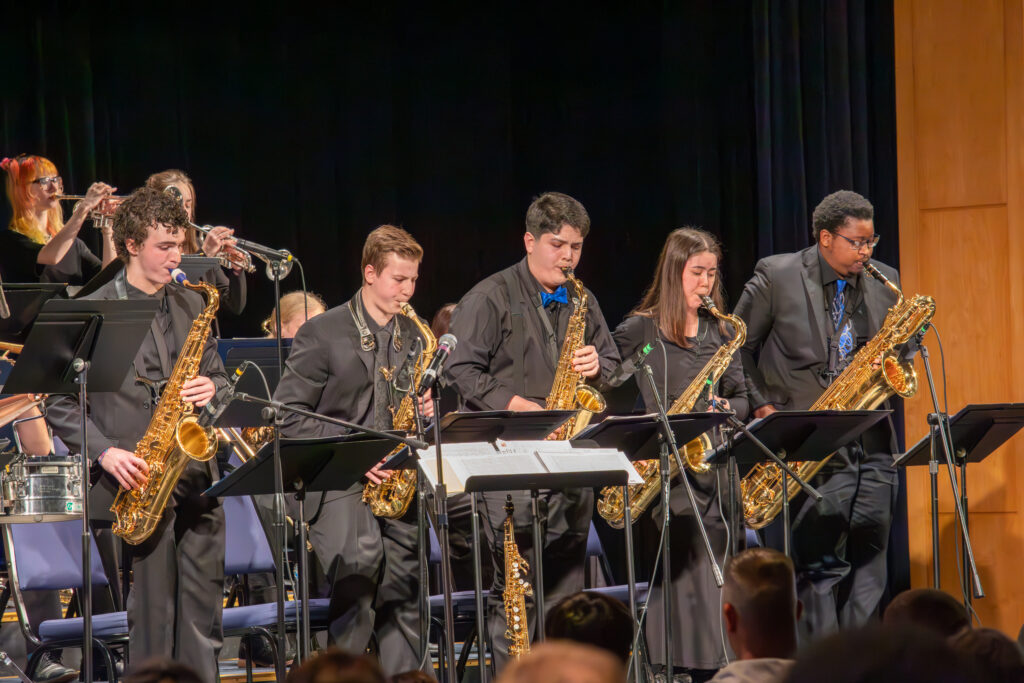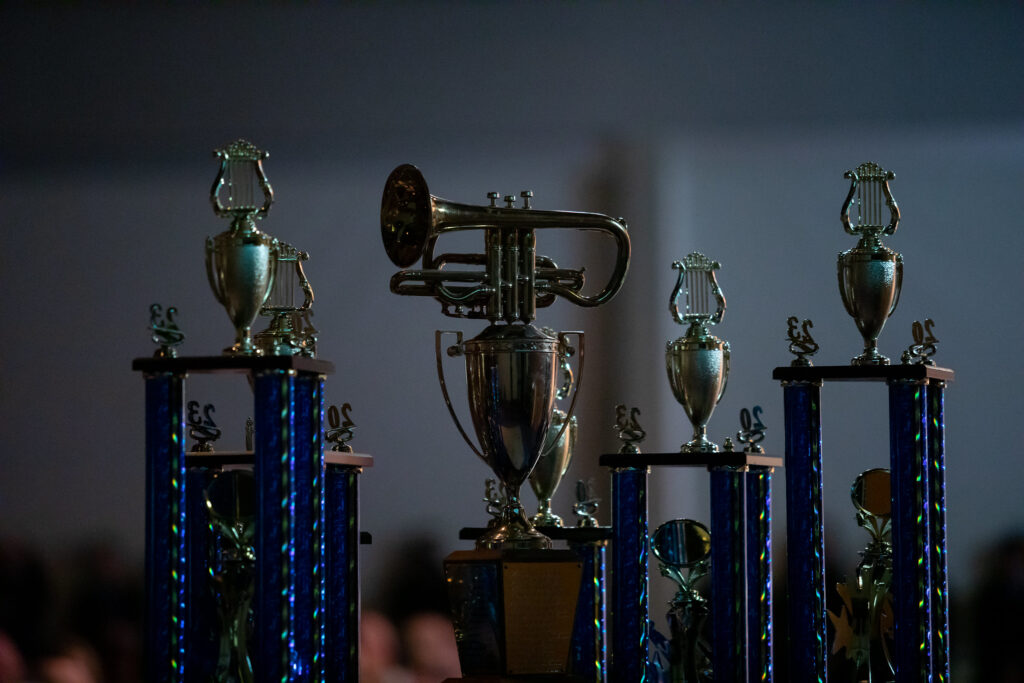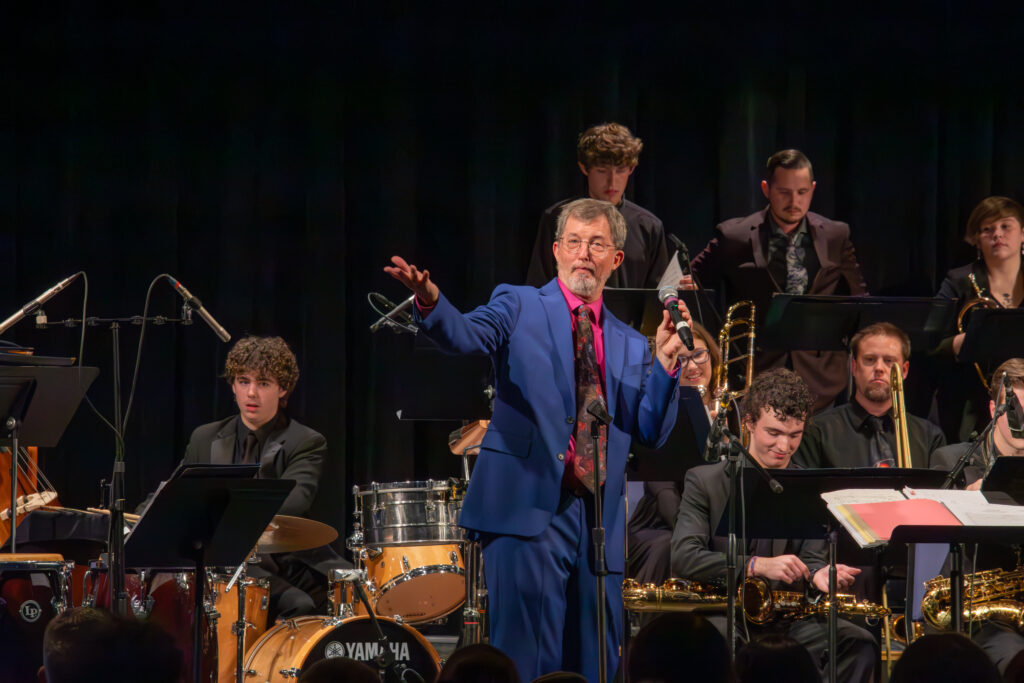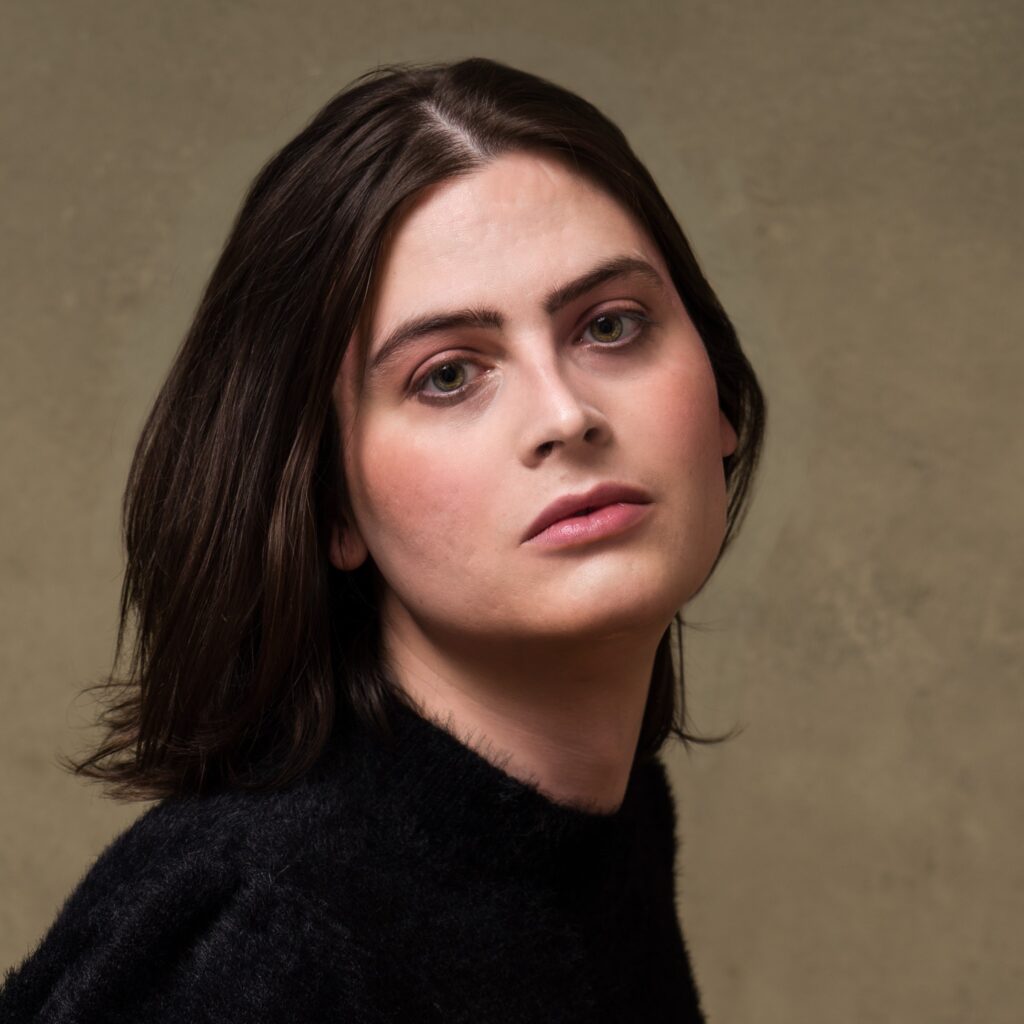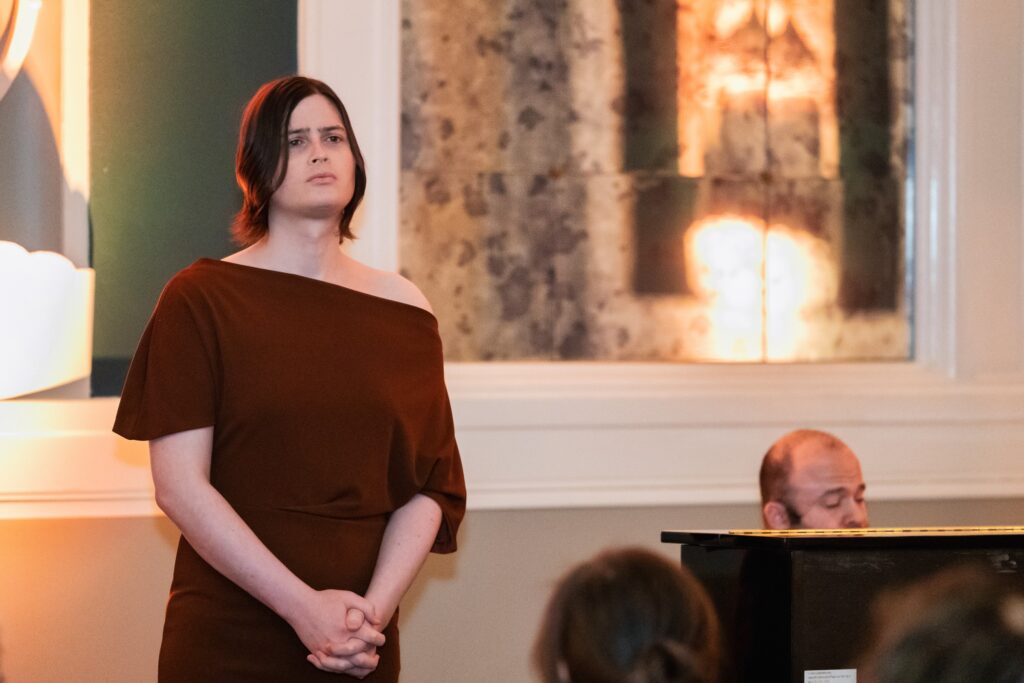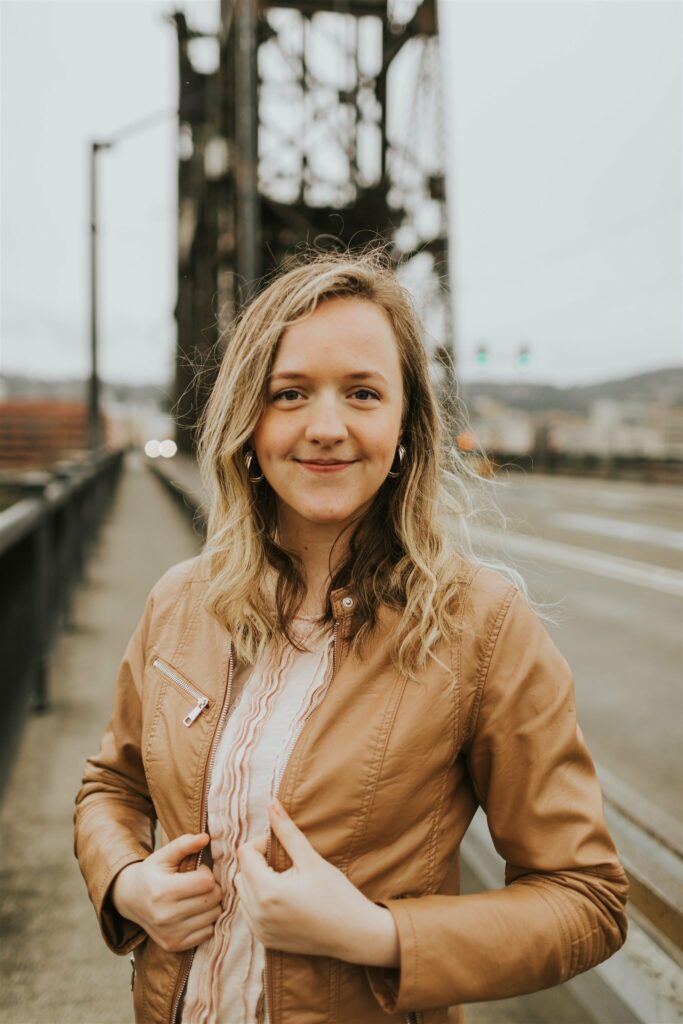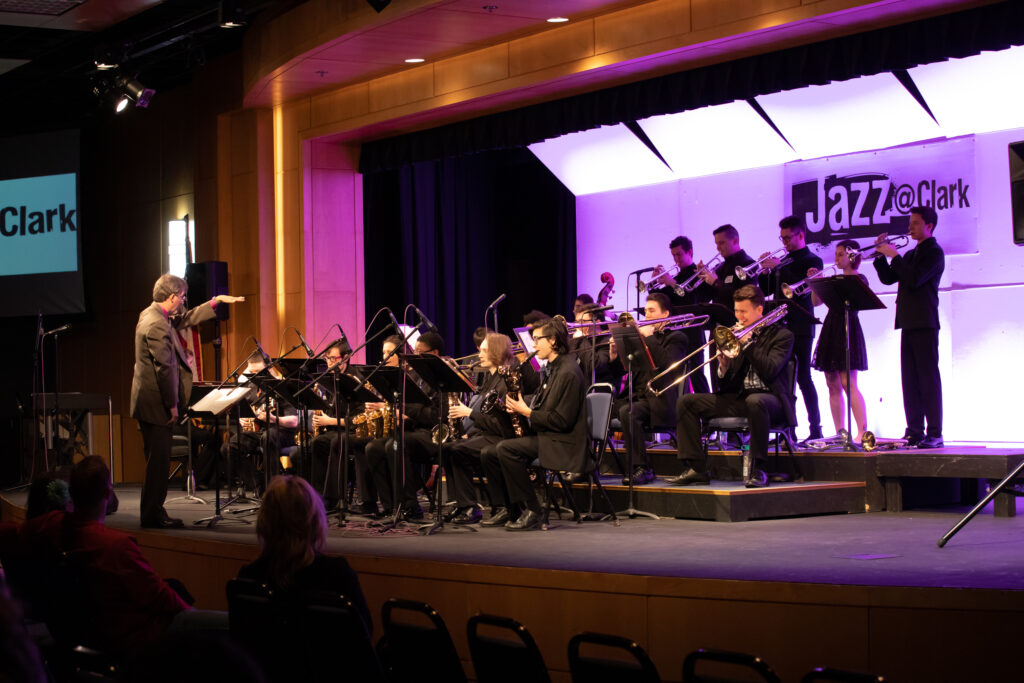61st Jazz Festival Results
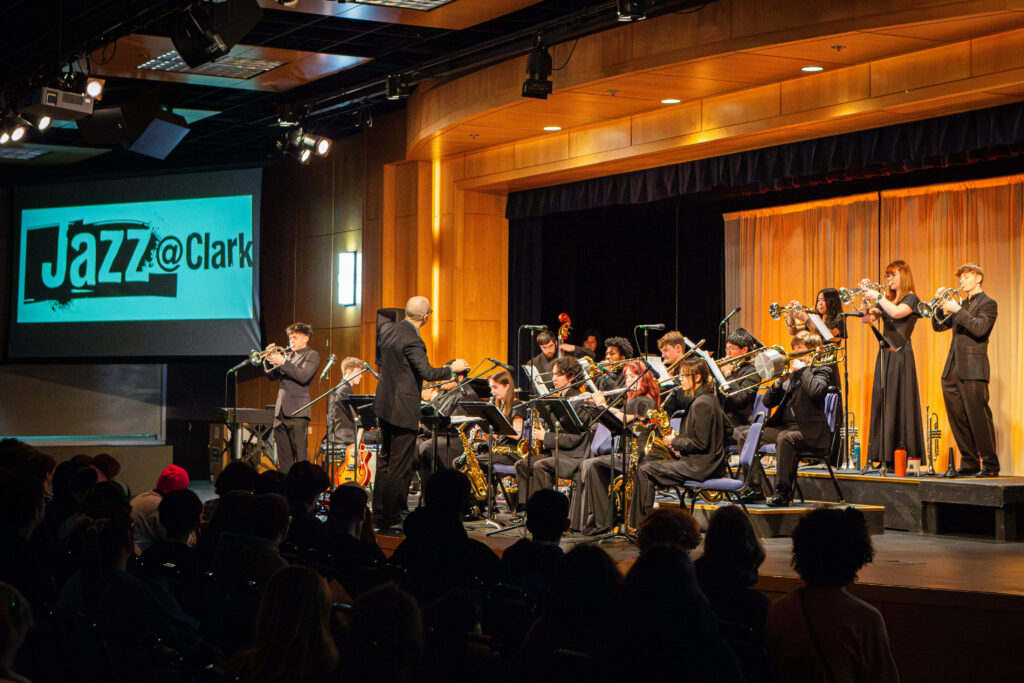
The Clark College 61st Annual Jazz Festival is in the books! Thanks to the student musicians, band directors, chaperons, family, and community members who attended the 61st Annual Clark College Jazz Festival from January 30 through February 1. Nearly 60 middle school and high school jazz bands performed for an appreciative audience at the world-class jazz festival.
The festival’s top award, the 2025 Dale Beacock Memorial Sweepstakes trophy, was awarded to Mountain View High School Jazz I of Vancouver, Wash.
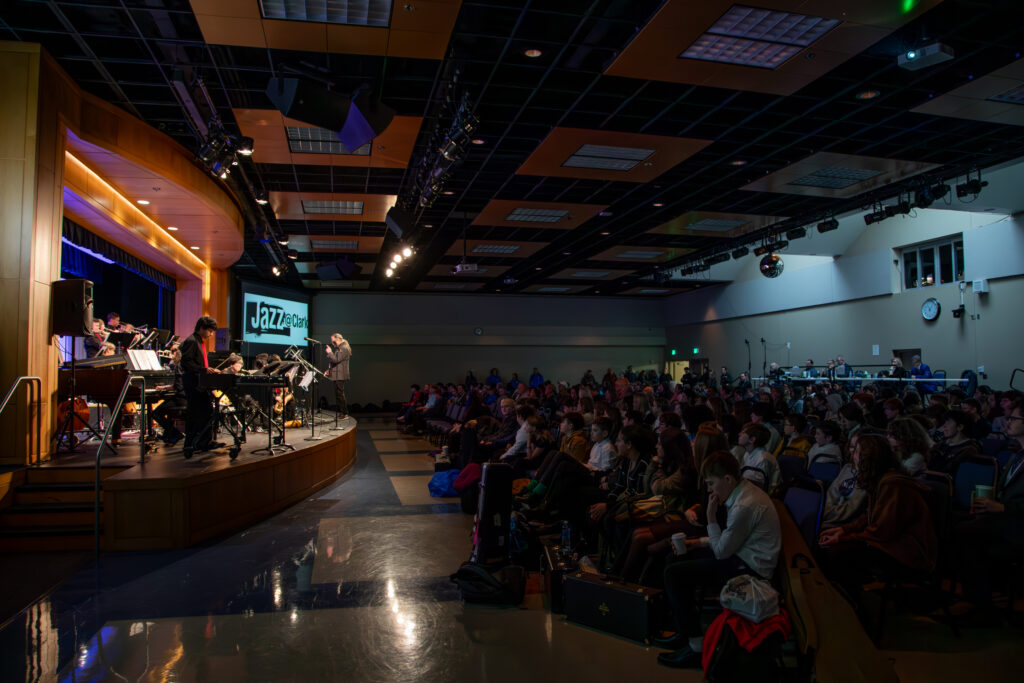
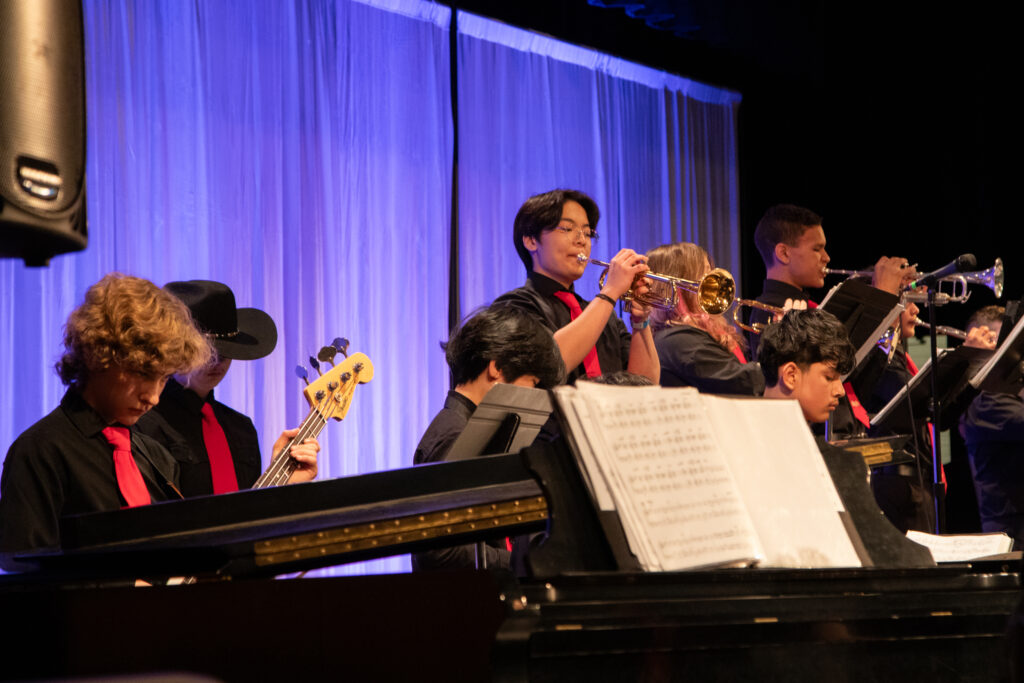
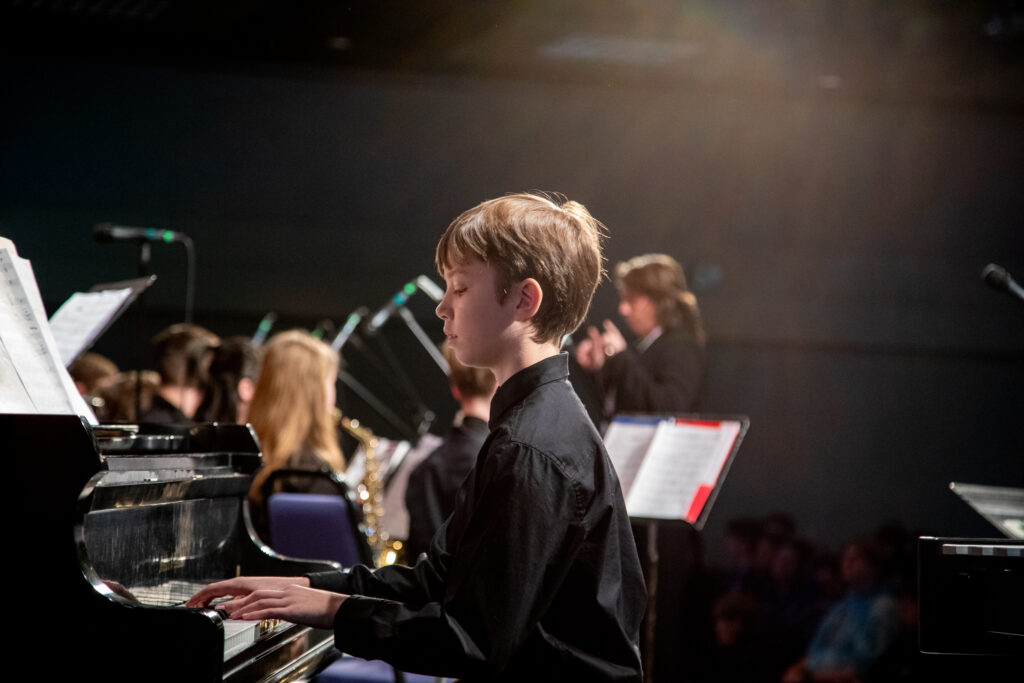
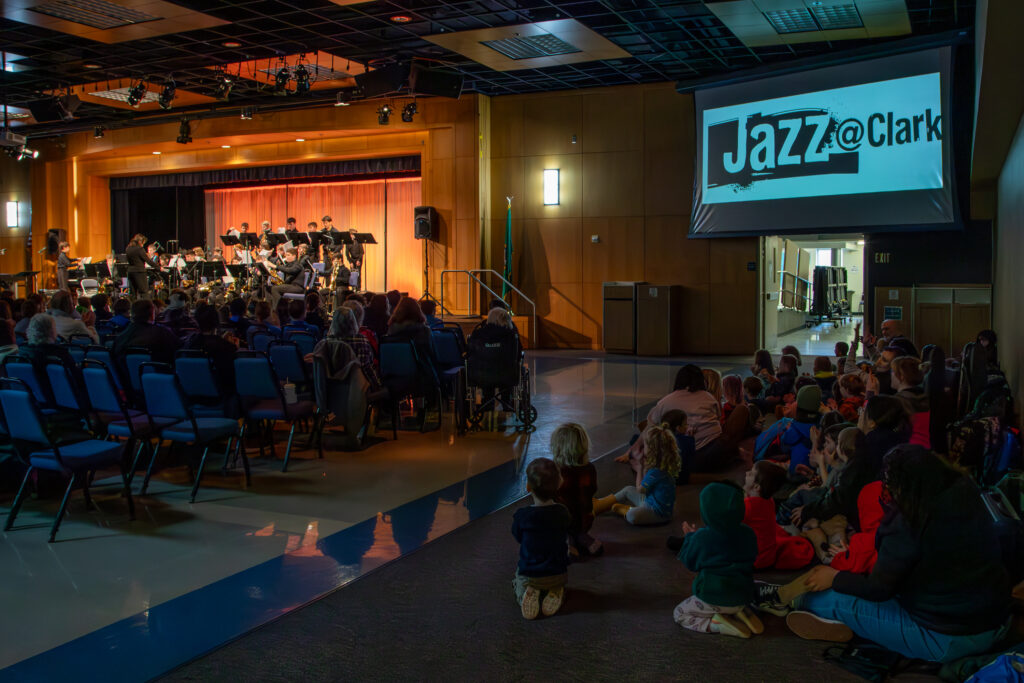
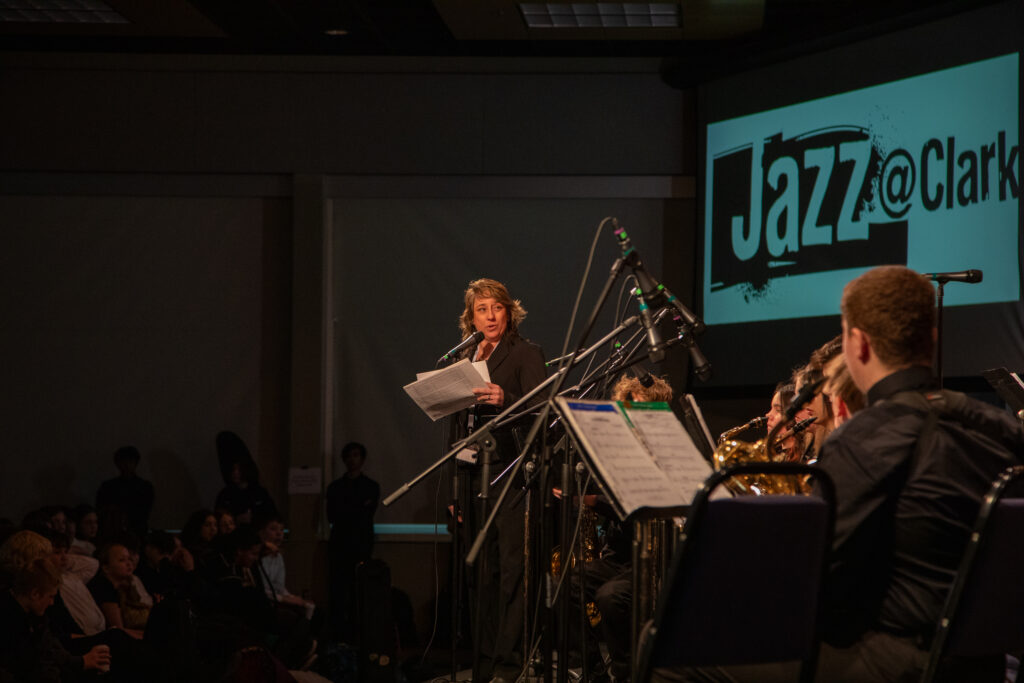
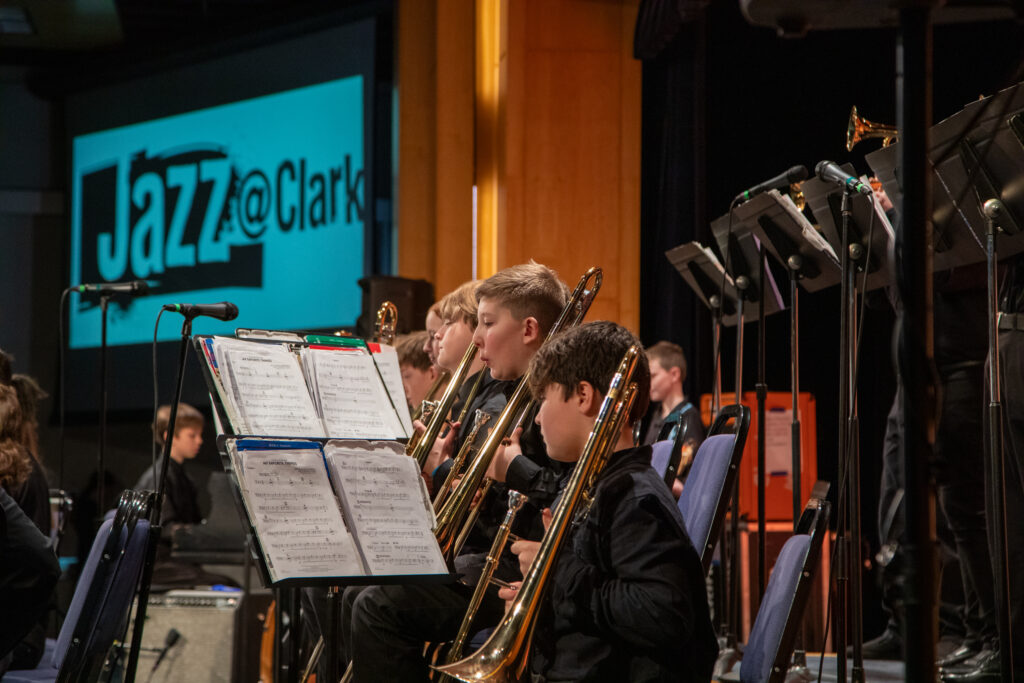
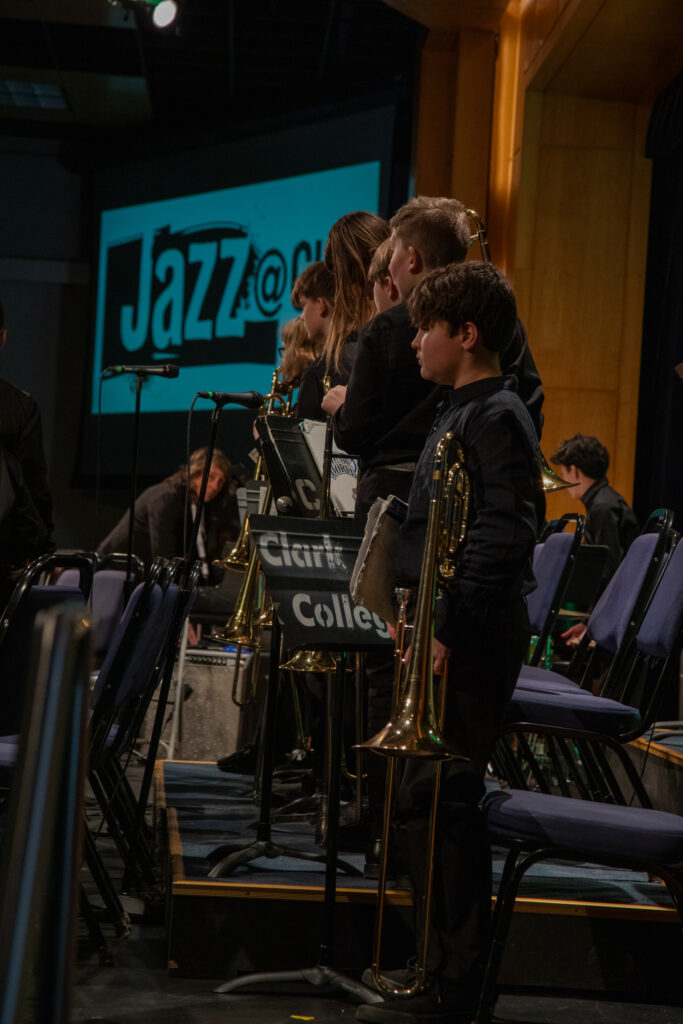
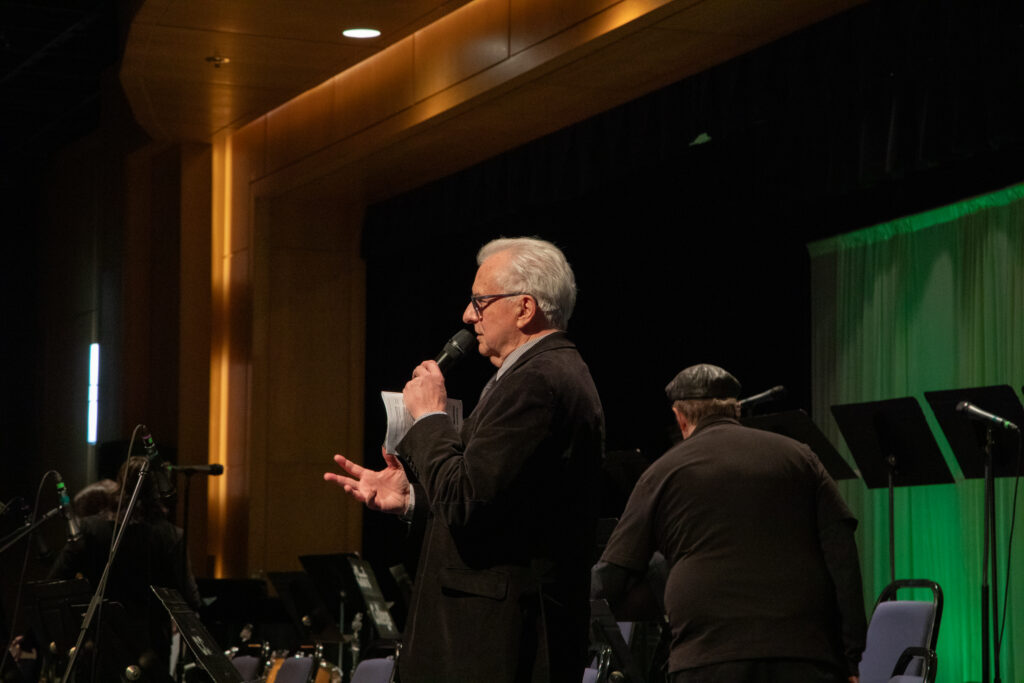
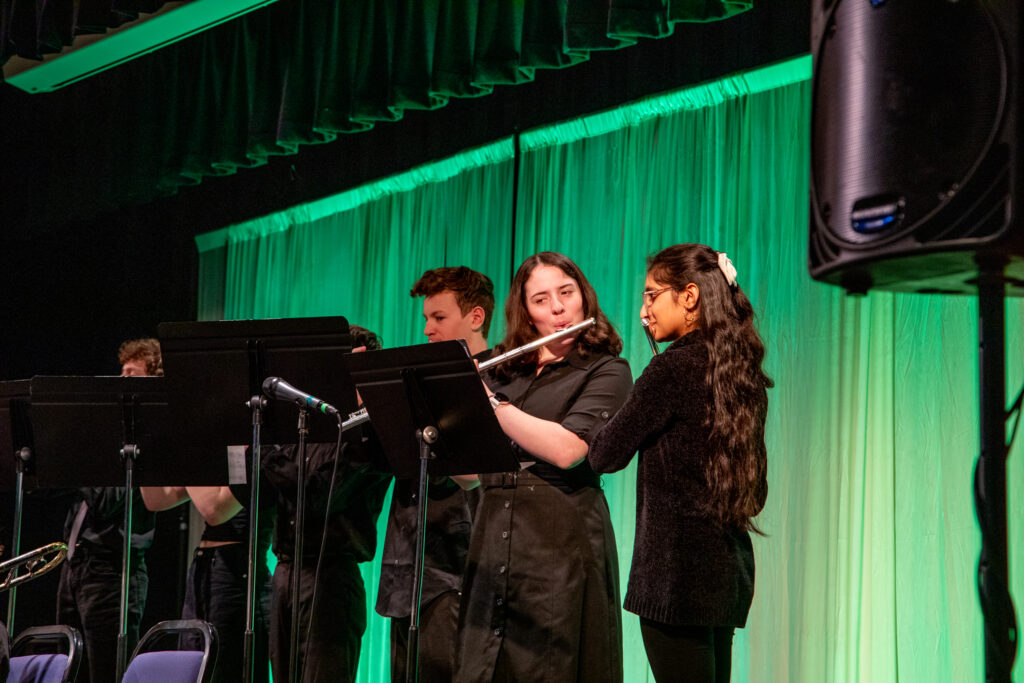
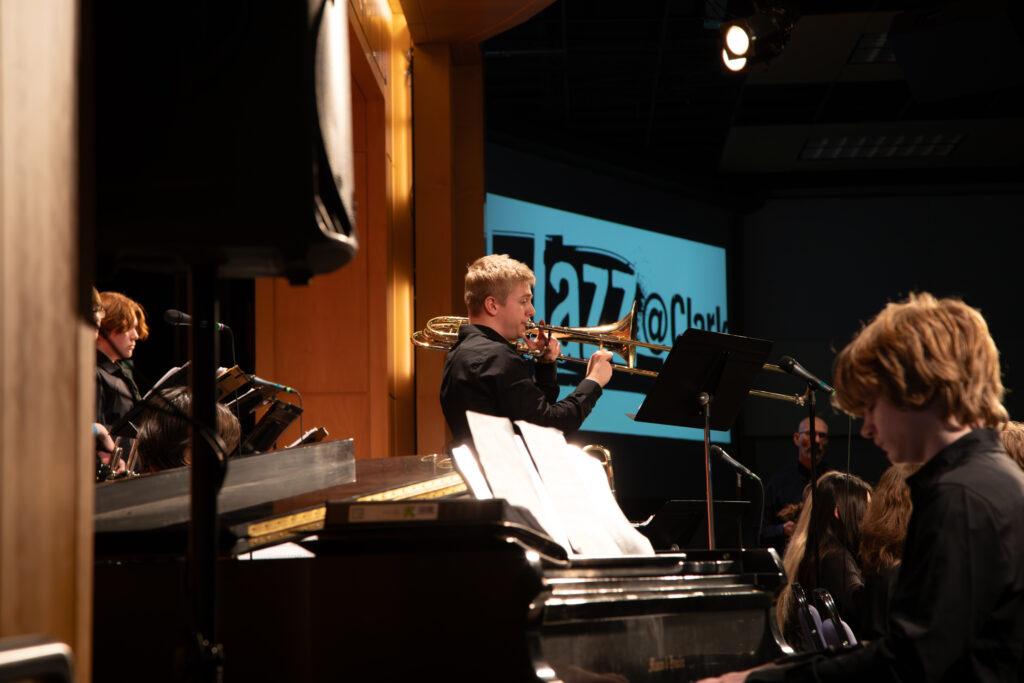
The jazz bands represented middle schools and high schools from a large region. Although many of the student musicians live in Clark County or the Portland metro area, many came from much further away —from as far north as Port Angeles, Washington, as far east as Yakima, and as far south as San Jose, California. Here is an overview of the participating jazz bands:
- Middle school jazz bands: 13 bands total, including 8 from Clark County, and others from Portland, Chehalis, Lacey, and Seattle
- High school “A” division: 6 bands total, including 2 from Clark County, and others from White Salmon, Port Angeles, and Langley
- High school “AA” division: 11 bands total, including 5 from Clark County, and others from Portland, Chehalis, Yakima, and Seattle
- High school “AAA” division: 12 bands total, including 6 from Clark County, and others from Portland, Lake Oswego, Seattle, Lake Stevens, and Bothell
- High school “AAAA” division: 10 bands total, including 4 from Clark County, and others from Hillsboro, Lake Oswego, Seattle, Lake Stevens, and San Jose, California
- In addition, 5 bands across all divisions performed to receive comments only, but did not compete. They represented schools in Clark County, Portland, and Yakima.
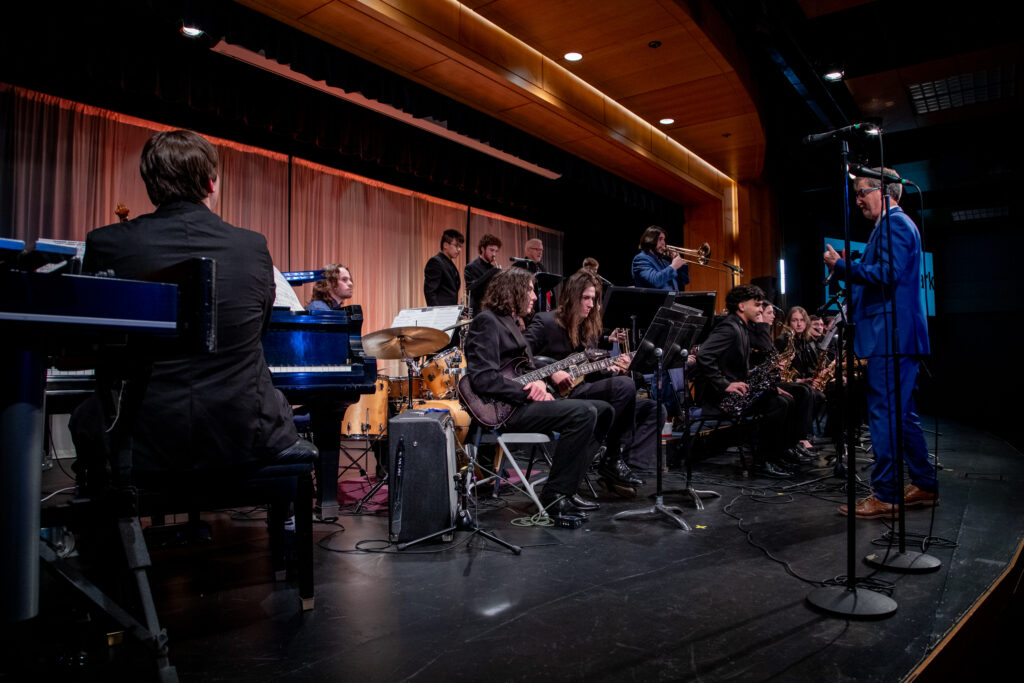
New: Farrell Family Instrument Award
The inaugural Farrell Family Instrument Award was presented to Clark College student Ian Arellano Mendez, who received a Buffet B flat clarinet. Norman Farrell is a Ridgefield musician and community volunteer. He and his wife, Carol Tocco, see access to a high-quality instrument as an essential part of achieving excellence in the continuing pursuit of college-level musical training. This award, made at the discretion of the Music Department, will go to a promising student participating in the Jazz Band at Clark College.
Mr. Farrell explained his impetus for providing the new award: “I had the good fortune to play great instruments from an early age; they have been a crucial and joyful part of my musical life.”
Middle School Awards
Middle School Silver Division jazz ensemble:
- 1st place – Eckstein Middle School, Seattle, Wash.
- 2nd place – Wy’east Middle School, Vancouver, Wash.
- 3rd place – Hockinson Middle School, Brush Prairie, Wash.
Outstanding section awards:
- Best trombone section: Wy’east Middle School, Vancouver, Wash.
- Best trumpet section: Hockinson Middle School, Brush Prairie, Wash.
- Best rhythm section: Eckstein Middle School, Seattle, Wash.
- Best saxophone section: Eckstein Middle School, Seattle, Wash.
Outstanding musician awards:
- Sellwood Middle School, Portland, Ore.: Archer Kleiss, Sean Hansman
- View Ridge Middle School, Ridgefield, Wash.: Maddy Gilbert
- Chehalis Middle School, Chehalis, Wash.: Maxton Hill, Jackson Groberg
- Lauren Middle School, Battle Ground, Wash.: Kylie Grier
- Wy’East Middle School, Vancouver, Wash.: Henry Ormson
- Tukes Valley Middle School, Battle Ground, Wash.: Addie Sahler
- Beaumont Middle School, Portland, Ore.: Jack Levenson, Ben Beadie
- Skyridge Middle School, Camas, Wash.: Charles Moen
- Aspire Middle School, Lacey, Wash.: Gio Ramirez
- Hockinson Middle School, Brush Prairie, Wash.: Jack Andreev, Landon Brown, Ashton Clark, Linnea Currens
- Liberty Middle School, Camas, Wash.: Keiran Ohta
- Eckstein Middle School, Seattle, Wash.: Julia Vaughan, Audrey Senescall, Lenka Dzunic, Oren Sternberg
- Chief Umtuch Middle School, Battle Ground, Wash.: Carson Coker
High School “A” Division Awards
“A” Division – High school jazz ensemble:
- 1st place – South Whidbey High School, Langley, Wash.
- 2nd place – Seton Catholic High School, Vancouver, Wash.
- 3rd place – Beaumont Middle School Jazz Ambassadors, Portland, Ore.
“A” Division – Outstanding section awards:
- Best saxophone section: Seton Catholic High School, Vancouver, Wash.
- Best trumpet section: South Whidbey High School, Langley, Wash.
- Best trombone section: South Whidbey High School, Langley, Wash.
- Best rhythm section: Beaumont Middle School, Portland, Ore.
“A” Division – Outstanding musician awards:
- Columbia High School, White Salmon, Wash.: Lila Witherrite
- Henrietta Lacks High School, Vancouver, Wash.: Jeremy Solis, Francisco Ramirez-Vasquez, Graham Rank
- Northwinds Homeschool, Port Angeles, Wash.: Eve Breithaupt
- Beaumont Middle School, Portland, Ore.: Evan Krall, Jack Flusche
- Seton Catholic High School, Vancouver, Wash.: Stephen Samwell, Gibson Lueck, Brennan Richardson, Kyler Dixon, Leo Gerhart, Nancy Nguyen
- South Whidbey High School, Langley, Wash.: Connor Porter, Liam Watkins, Abram Durham, Mila Wright, Olin Nelson, Felix Kehl, Irene Stewart
High School “AA” Division Awards
“AA” Division high school jazz ensemble:
- 1st place – Mountain View High School Jazz II, Vancouver, Wash.
- 2nd place – W.F. West High School, Chehalis, Wash.
- 3rd place – Heritage High School Jazz II, Vancouver, Wash.
“AA” Division – Outstanding musician awards:
- West Valley High School, Yakima, Wash: Maggie Eldridge
- La Center High School, La Center, Wash.: Oliver Stub
- Parkrose High School, Portland, Ore.: Sophie Ohle
- Grant High School, Portland, Ore: Daiel Gerber, Zach Hillenbrand
- Mountain View High School, Vancouver, Wash.: Reggie Kellog, Joshua Leahu
- Ingraham High School, Seattle, Wash.: Elliott Emerson
- Isaiah McCaw – Ridgefield High School, Ridgefield, Wash.
- Columbia River High School, Vancouver, Wash.: Furious Hill, Macie MacDonald
- W.F. West High School, Chehalis, Wash.: Caleb Gill
- Heritage High School, Vancouver, Wash.: Joy Sanchez
- Bishop Blanchet High School, Seattle, Wash.: Cormac Saleem
High School “AAA” Division Awards
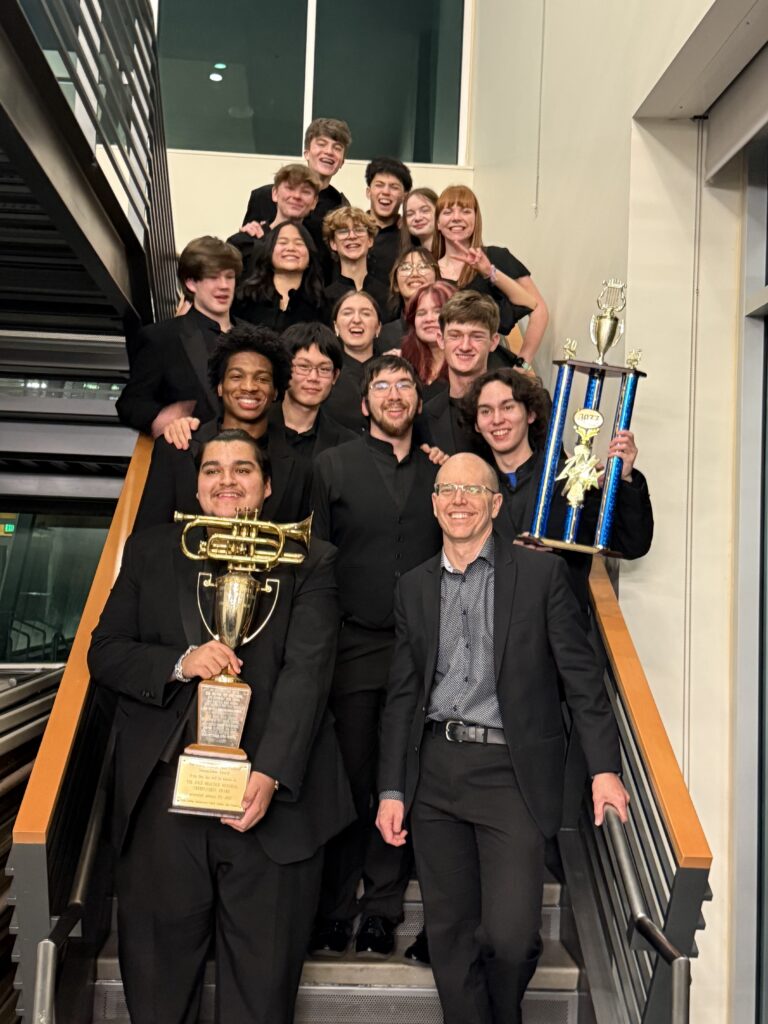
“AAA” Division – High school jazz ensemble:
- 1st place – Mountain View High School Jazz I, Vancouver, Wash.
- 2nd place – Grant High School Jazz II, Portland, Ore.
- 3rd place – Heritage High School Jazz I, Vancouver, Wash.
“AAA” Division – Outstanding musician awards:
- Union High School, Camas, Wash.: Reese Billington
- Grant High School, Portland, Ore.: GeorZia Doughty, Sasha Burns, Xander Buck, Reed Bevan, Sasi Isreb
- Lake Oswego High School, Lake Oswego, Ore.: Rowan Ducker, Mia Jensen
- Lake Stevens High School, Lake Stevens, Wash.: Kylie Forston, Brody Gray
- Prairie High School, Vancouver, Wash.: Gavin DeMoss, William Johnstone
- Vancouver School of Arts and Academics, Vancouver, Wash.: Lillian LaFontaine, Jack Melton, George Powell
- Hockinson High School, Brush Prairie, Wash.: Levi Brown, Mason Seal, Thilo Kluth, Jack Smith, Brenden Weber
- Garfield High School, Seattle, Wash.: Sam Brookover
- Lake Stevens High School, Lake Stevens, Wash.: Gabe Lawrence
- Ingraham High School, Seattle, Wash.: Meler Eagan, Nathan Doyle, Beckett VanDyke, Riley Mason
- Mountain View High School, Vancouver, Wash.: Harrison Matz, Rey Notarte, Venunye Tamakloe, Bella Fitzgerald, Kenji Tanaka, Shiloh Rush
- Bothell High School, Bothell, Wash.: Sachita Kadirvelu, Nathan Jonart
- Heritage High School, Vancouver, Wash.: Henry Ngo, Dakotah Leach
High School “AAAA” Division Awards
“AAAA” Division – High school jazz ensemble:
- 1st Place – Garfield High School Jazz I, Seattle, Wash.
- 2nd Place – Grant High School Jazz I, Portland, Ore.
- 3rd Place – Union High School Jazz I, Camas, Wash.
“AAAA” Division – Outstanding high school musician awards:
- Glencoe High School, Hillsboro, Ore.: Holly Hesemann
- Lakeridge High School, Lake Oswego, Ore.: Mila Kaplan, Elaina Stupples
- Branham High School, San Jose, Calif.: Matsya Vinodh
- Skyview High School, Vancouver, Wash.: Jonah Travers Powers
- Prairie High School, Vancouver, Wash.: Aubrey Grier, Ruth Sprenger
- Battle Ground High School, Battle Ground, Wash.: Driggs Hemming, Ekaterina Kalinin, Maddox Cheen-Connley
- Union High School, Camas, Wash.: Isabelle Cryan, Cooper Givens
- Garfield High School, Seattle, Wash.: Timothy Park, Brayden Wang, Will Heath, Bolan Delange
Comments Only Participants
Outstanding musician awards (bands who performed, but did not compete)
- Vancouver School of Arts and Academics, Vancouver, Wash.: Soren Vrosh
- Battle Ground High School, Battle Ground, Wash.: Eli Lennick, Joseph McKnight
- Vernon Middle School, Portland, Ore.: Beatrix Heller
- Covington Middle School, Portland, Ore.: Colton Woods, Trinity Harter
- West Valley High School, Yakima, Wash.: Keira Osburn, Hyrum Jensen
Congratulations to all the fine bands who participated! Please join us next year on the last weekend of January for the 62nd Annual Clark College Jazz Festival.
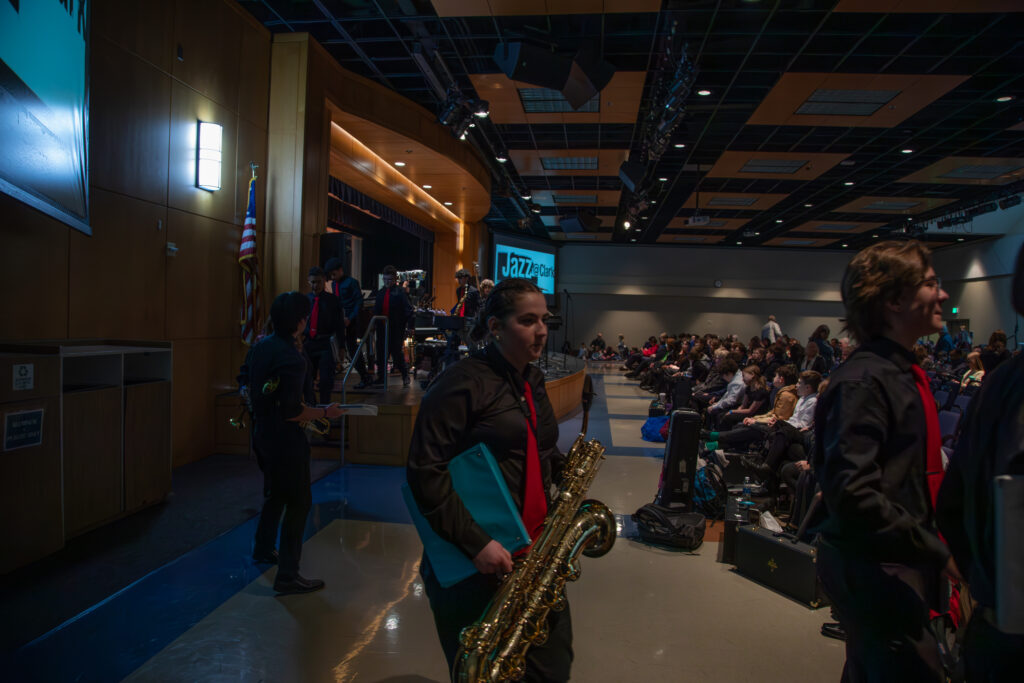
About Clark College Jazz Festival
The Clark College Jazz Festival has evolved since its beginning in 1962 when Don Cammack, Hudson’s Bay High School band director organized a one-day high school stage band invitational, the Southwest Washington Jazz Festival, at Hudson’s Bay. Over the decades, under the direction of dedicated music educators Dale Beacock, Chuck Ramsey, Richard Inouye, and Dr. Doug Harris, the festival expanded. In 1970, Beacock, then band director at both Clark College and Fort Vancouver High School, held the festival at Clark College for the first time. The Clark College Stage Band Invitational at Clark hosted 17 high school jazz bands. Beacock’s vision for a competitive jazz showcase for schools throughout Washington and greater Portland promoted the festival’s growth. In 1971, 32 bands competed over two days; participation grew to 52 bands by 1976. The 60th Annual Clark College Jazz Festival in 2024 welcomed 56 middle and high school jazz ensembles, more than 1,200 student musicians and more than 3,000 people during the three-day event, directed by Dr. Doug Harris, director of bands at Clark College.
Photos: Clark College/Jenny Shadley
